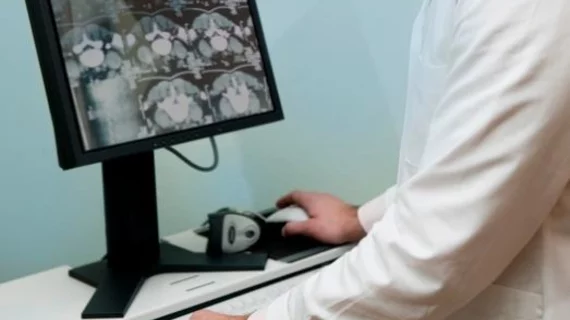Hundreds of CT scans went unread at one medical center, fueled partly by overworked radiologist: Report
Almost 2,000 images produced by a CT scanner went unread for years at the Walter Reed National Military Medical Center, delaying treatment for at least one veteran, the Wall Street Journal reported Saturday, Nov. 23.
One physician at the Bethesda, Maryland, institution fears that hundreds more may have missed essential treatment due to the lapse, caused by faulty processes, technical snafus and an overworked radiologist, a Navy investigation found.
The sizable backload included 1,300 unread cone beam CT (CBCT) scans of patients’ faces and jaws that were collected from 2011 to 2016 at Navy’s postgraduate dental school. Another 500 CT scans at Walter Reed went unread in 2018, fueled by similar factors. Investigators, however, found no malicious intent, nor did they find that anyone was punished for the oversight, the Journal reported.
“The investigation determined that the CBCT backlog did not result in adverse outcomes for patients and made several recommendations to improve procedures,” Ed Gulick, spokesman for Navy Medicine, told the newspaper. “The backlog of CBCT scans has been cleared, and the investigation’s recommendations are currently being implemented by the Naval Postgraduate Dental School.”
Laura Ike, a former Navy oral pathologist, reportedly discovered the backlog in 2016 when she could not find one patients’ CBCT scan, eventually triggering the internal probe. Several factors contributed to the backlog, including a radiologist who was working from home while being treated for cancer, but unable to keep up with demand because of technical issues and “malaise.”
Read the entire story below.

